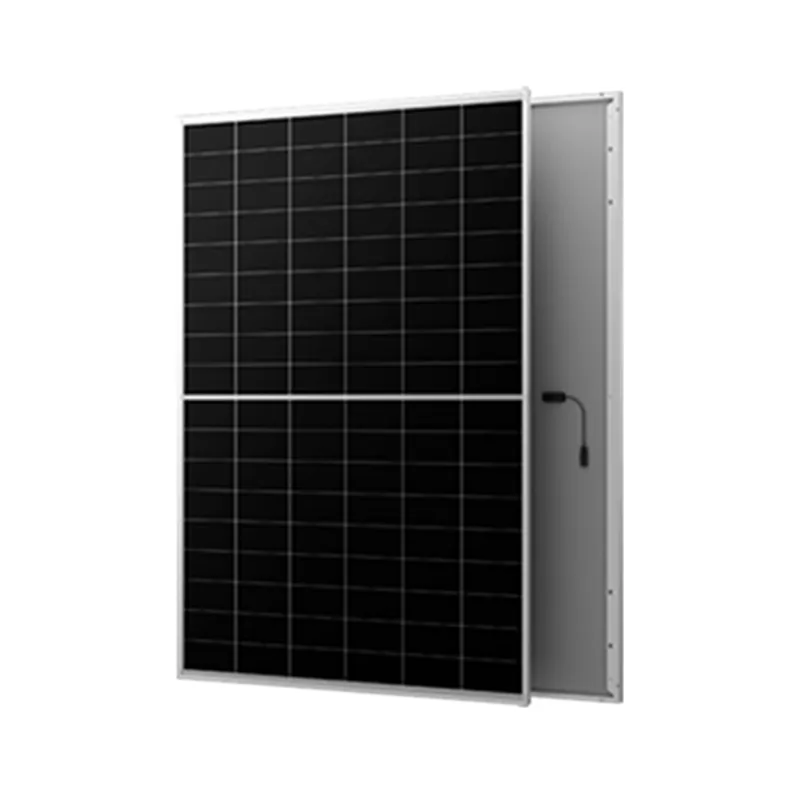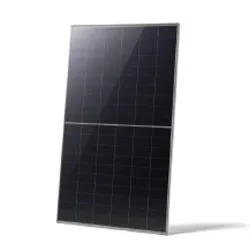Cost of Solar Panels for 2 Bedroom House Affordable Installation & Savings Guide
- Introduction: Understanding the cost of solar panels for 2 bedroom house
- Key Factors Influencing Solar Panel Pricing for Residential Homes
- Technical Advantages of Modern Residential Solar Panels
- Manufacturer Comparison: Leading Brands and Their Offerings
- Customized Solar Solutions for 2, 3, 4, and 5 Bedroom Homes
- Real-life Case Studies: Application Scenarios Across Home Sizes
- Conclusion: Making an Informed Decision on the cost of solar panels for 2 bedroom house

(cost of solar panels for 2 bedroom house)
Introduction: Understanding the cost of solar panels for 2 bedroom house
Solar panel installation for residential properties has seen significant growth due to advances in technology and reductions in price over the past decade. Homeowners interested in solar often wonder about the cost of solar panels for 2 bedroom house and how it compares to other home sizes like 3, 4, or 5 bedrooms. Factors such as local incentives, system capacity, rooftop orientation, and installer costs all play a role. In this guide, we will provide a comprehensive overview of pricing models and the real investment homeowners face today.
Key Factors Influencing Solar Panel Pricing for Residential Homes
Installing solar panels involves various direct and indirect expenses, and the total investment can vary widely. The primary elements influencing the cost of solar panels for a home include system size, panel efficiency, location, labor charges, and the specific energy needs based on house size and daily usage. For example, a 2-bedroom house with lower energy demands will typically need a smaller PV system, often between 3 to 4 kW, leading to a perceptibly lower upfront cost. Regulatory fees, mounting structure types, and optional battery storage also shape the overall budget.
The average cost per watt of solar in the United States in 2024 varies between $2.50 and $3.50 before applying incentives. This means that for a 2-bedroom house (estimated to require about 3.5 kW), the gross system price ranges from $8,750 to $12,250. Larger homes with more occupants and greater appliance use, such as 4 or 5 bedroom properties, require bigger systems, pushing costs higher accordingly. Government programs, tax credits, and net metering further impact the final out-of-pocket expenses.
Technical Advantages of Modern Residential Solar Panels
Today’s residential solar panels are more efficient and durable than ever before, increasing return on investment for homeowners. Modern photovoltaic (PV) technologies commonly reach efficiencies above 20%, translating to more power in less space. This is crucial for smaller homes with limited roof area, as higher-efficiency panels can deliver the needed output with fewer modules.
Innovations such as microinverters and power optimizers enhance energy yield, especially on partially shaded roofs. Tier-1 panels often come with warranties up to 25 years, ensuring decades of reliable power production. Some all-in-one systems now integrate smart monitoring, real-time performance tracking, and seamless connection to home automation solutions. These advancements collectively lower the levelized cost of electricity (LCOE) from residential solar systems across 2, 3, 4, and 5 bedroom houses.
Manufacturer Comparison: Leading Brands and Their Offerings
The global solar panel market is dominated by several reputable manufacturers, each offering different pricing, efficiency levels, and warranty packages. The table below summarizes key metrics of top brands commonly chosen for houses of various sizes:
| Brand | Efficiency (%) | Warranty (Years) | Average Price per Watt ($) | Recommended for (Bedroom) |
|---|---|---|---|---|
| SunPower | 22.6 | 25 | 3.30 | 2-5 |
| REC Group | 21.7 | 25 | 2.95 | 2-4 |
| Q CELLS | 20.6 | 25 | 2.75 | 2-5 |
| Canadian Solar | 20.1 | 25 | 2.65 | 3-5 |
| JinkoSolar | 20.5 | 12 | 2.55 | 2-4 |
Choosing the right manufacturer will often depend on the specific constraints of the home, such as roof space, aesthetic preference, and budget. SunPower, for instance, leads in efficiency but carries a premium price, making it optimal for homes with limited installation area or for maximizing long-term electricity yield.
Customized Solar Solutions for 2, 3, 4, and 5 Bedroom Homes
No two households consume energy in precisely the same manner, even within similar-sized homes. The “right” system size is derived from analyzing a household’s past year of consumption (measured in kilowatt-hours), peak load, and average sunlight hours for the property’s location. Here’s a data-driven cost outline across home sizes:
| Home Size | Average System Size (kW) | Approximate Gross Cost Range ($) | Typical Annual Energy Use (kWh) |
|---|---|---|---|
| 2 Bedroom | 3.5 | 8,750 - 12,250 | 4,500 - 6,000 |
| 3 Bedroom | 5.0 | 12,500 - 17,500 | 6,000 - 9,000 |
| 4 Bedroom | 6.5 | 16,250 - 22,750 | 9,500 - 13,000 |
| 5 Bedroom | 8.0 | 20,000 - 28,000 | 13,000+ |
These values represent gross costs before rebates and tax incentives, and actual needs may vary based on insulation, appliance efficiency, and user habits. Furthermore, battery storage options and EV integration can alter the system design. Engaging a certified installer ensures a bespoke solution that precisely matches the homeowner’s requirements.
Real-life Case Studies: Application Scenarios Across Home Sizes
Understanding how solar panel systems work in real residential scenarios provides critical insights for prospective investors. Below are a few representative case studies across different home sizes:
- 2 Bedroom House: An urban homeowner in California opted for a 3.7 kW system by SunPower and saw annual electricity bills drop from $1,070 to $110. The system paid back in 6.5 years with a 28% federal tax credit.
- 3 Bedroom Rural Property: In Texas, a family installed a 5.2 kW system with REC panels. This reduced grid reliance by 80%, with an average annual savings of $950.
- 4 Bedroom Suburban Home: A 6.8 kW Q CELLS array in Florida included battery backup for storm resilience. Their bi-annual energy cost savings reached $1,650, and the backup ensured security during frequent outages.
- 5 Bedroom Residence: A large New Jersey household combined an 8.4 kW Canadian Solar system with two Tesla Powerwalls. This setup enabled grid independence for much of the summer and powered EV charging.
These examples highlight the impact of tailored system design, the role of local climate, and the magnitude of savings achievable with solar solutions matched to the true needs of the residence.
Conclusion: Making an Informed Decision on the cost of solar panels for 2 bedroom house
The decision to install solar panels for a 2 bedroom house, or indeed for larger homes, hinges on understanding all cost-influencing elements—from the size and efficiency of the chosen system, to the brand and supporting technology. Thanks to falling prices, high system reliability, and increasing incentives, solar energy has become a sound investment for owners of homes ranging from modest two-bedroom properties to capacious five-bedroom residences. By leveraging the latest technologies and working with transparent, reputable manufacturers and installers, homeowners can maximize financial and environmental benefits, ensuring sustainable energy for years to come.

(cost of solar panels for 2 bedroom house)
FAQS on cost of solar panels for 2 bedroom house
Q: What is the average cost of solar panels for a 2 bedroom house?
A: The cost of solar panels for a 2 bedroom house typically ranges from $6,000 to $12,000 before tax credits. Prices depend on energy needs and system size. Actual costs may vary based on installation and location.
Q: How much does it cost to install solar panels on a 3 bedroom house?
A: For a 3 bedroom house, solar panel installation usually costs between $9,000 and $15,000 before incentives. The final price depends on overall electricity use and panel efficiency. Local installers can provide detailed quotes.
Q: What factors affect the cost of solar panels for a 4 bedroom house?
A: The cost for a 4 bedroom house ranges from $12,000 to $20,000, depending on energy usage, roof size, and panel type. Higher energy consumption may require a larger system. Location and installation complexity also impact price.
Q: Are the costs of solar panels for a 5 bedroom house much higher than smaller houses?
A: Yes, a 5 bedroom house generally needs a larger solar system, costing between $15,000 and $25,000 before tax credits. Larger systems produce more energy to meet higher demands. Incentives can help reduce the overall expense.
Q: Can I save money by installing solar panels on a 2 bedroom house?
A: Installing solar panels on a 2 bedroom house can significantly lower your electricity bills. The initial cost is offset by long-term savings and available incentives. Over several years, most homeowners see a strong return on investment.
-
Unlocking Energy Freedom with the Off Grid Solar InverterNewsJun.06,2025
-
Unlock More Solar Power with a High-Efficiency Bifacial Solar PanelNewsJun.06,2025
-
Power Your Future with High-Efficiency Monocrystalline Solar PanelsNewsJun.06,2025
-
Next-Gen Solar Power Starts with Micro Solar InvertersNewsJun.06,2025
-
Harnessing Peak Efficiency with the On Grid Solar InverterNewsJun.06,2025
-
Discover Unmatched Efficiency with the Latest String Solar InverterNewsJun.06,2025







